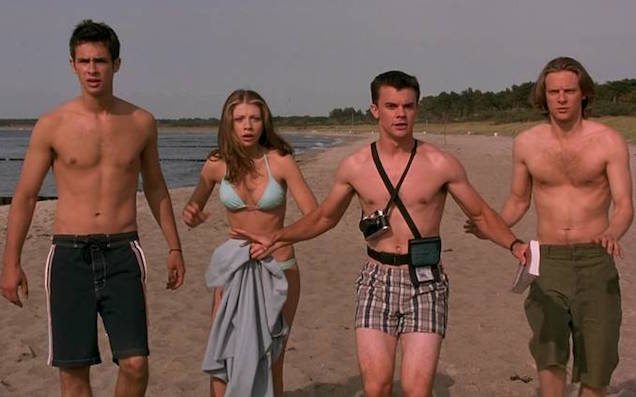
Travelling the world is one of life’s greatest pleasures. If everything goes to plan, you’ll have fond travel memories forever, but of course, things can go wrong from time to time and when shit hits the fan abroad, things can get downright scary pretty quickly.
Fear not, brave traveller, there are ways to avoid most of the common problems one can face when travelling. Here’s what you should keep in mind.
Lost/stolen passport
One of the biggest pains you can experience overseas is losing your passport. Not only is your most important form of ID now gone, but getting it replaced can cost you valuable time and money, which is not at all ideal when you’re meant to be having a great time.
The most important thing you can do is know where your passport is at all times. Some folks like to keep it with them when they head out and others like to keep it locked up in their room, but neither option is a completely safe solution. Having it with you means it can be taken if you get mugged and there’s always a chance it can be taken from your room, especially if you’re staying in a hostel. Choose the option you feel most comfortable with.

You should make multiple copies of your passport and other important documents to keep in separate places in your bags and with a trusted family member or friend back home. You should also email yourself a copy just in case. Having these will make the process of replacing it or obtaining a temporary one a little easier if you need to.
If you do lose your passport, you should head to the official Australian passports website‘s “Lost or stolen” section to report it missing as soon as you notice it’s gone. You’ll need your passport number to do this which is why it’s so important to have the details stored somewhere secure. You’ll have to jump through some hoops, but you’ll be issued with an emergency passport to be picked up from the nearest Australian diplomatic mission in the country you’re in.
Getting ripped off with currency fees
Currency-related fees are insanely annoying and often forgot about when travelling. Whether they’re foreign ATM fees, conversion fees, loading fees or similar, knowing about them well before you leave the country could save you a heap of money.
If you’re going to use a travel card, make sure you find one with minimal fees. You should look at things like what they charge to convert currency, how much they take when you load it up with a lump sum, and if they charge you to withdraw cash from an ATM.
Alternatively, most banks will let you use your standard credit/debit cards overseas as long as you let them know before you leave. While most banks will charge you some kind of fee at some point along the way, there a few that offer little or no fees at all.
The new digital bank, Xinja, for example, charges no international transaction fees when you use its Xinja Debit Mastercard overseas (which includes its use via Apple Pay or Google Pay). This means there are no ATM fees, no currency conversion fees and no markups on the exchange rate (which is just Mastercard’s daily standard FX rate) whether you’re busting out some cash or using the card in stores.
It also displays payments in both currencies in the app, which will save you a lot of dicking around with the Google currency converter. You can also do instant top-ups from another Aussie debit card if you need extra cash in a hurry.

Lost baggage
Lost baggage can be a total nightmare, and it can often take days for an airline to recover items lost in transit. While there isn’t really a way to stop airlines screwing up, you can certainly make your life a little less stressful if they do.
First of all, don’t put any important or valuable items in your checked baggage. Travel documents, insurance, debit/credit cards, laptops, phone chargers, medications and anything similarly important should be kept with you on the plane. When packing, ask yourself if you can get by without each item for a couple of days and if the answer is no, make room for it in your carry-on luggage.
It also helps to chuck a change of clothes in your carry-on if you have the room, or at the very least, some fresh undies and socks. If your bag does get yeeted into the void, at least being able to change out of your gross plane undies will be a small comfort.
You can also tick a lost baggage option on your travel insurance if you feel like you’re prone to a bit of bad luck.

Getting robbed
Aside from the obvious loss of your property/money, being mugged can be goddamn terrifying, and if you get hit by a skilled pickpocketer, you may not even know until hours later.
While they might seem kinda lame, investing in a travel belt will give you peace of mind when it comes to getting around with your passport and travel cards. Hell, bum bags are even back in fashion these days if travel belts aren’t your jam. You should also make copies of all your important documents and cards for the same reason as your passport – it’ll make it way easier for you if something does happen.
If you’re backpacking, opt for a high-quality slash-proof bag, as some thieves have been known to simply cut open the bottom of bags and take off with the contents.
If thieves do manage to take off with your wallet, make sure you contact your bank to immediately lock or cancel your cards. If you’re with Xinja, you can lock your card instantly via the app, and if it turns out you just had too many drinks and stashed it somewhere stupid, you can also unlock it in the same way.
It’s also important to not look like a total tourist when you’re wandering around. Big flashy cameras and a brand new souvenir shirt will basically put an enormous dollar sign over your head for crims. Be discreet.

Lastly, if you’re really paranoid, you can carry around a decoy wallet with a little money in it. If you get mugged, hand over the decoy and hopefully your legit stuff will be fine.
Medical situations
Getting sick overseas can leave you with much more than the runs, it can also run your bank account dry.

In countries like the United States where healthcare is insanely expensive, treatment for accidents or unexpected illnesses can cost hundreds of thousands of dollars. The prevention is affordable and obvious – travel insurance.
In most cases, travel insurance is a pretty minor expense compared to the potential costs of winging a trip without it. Furthermore, it can also cover expensive items if they’re stolen.
Of course, insurance won’t stop you picking up a gnarly illness abroad, but a few things can make that a little less likely. First of all, make sure you get any vaccinations required for the destination and know whether you can drink the tap water or if you need to stick with bottled water in some areas.
Above all, just be mindful of what you’re doing and where you are. Always wash your hands, be careful when it comes to street food, and don’t do anything stupid while you’re pissed and you’ll be on your way to a healthy holiday.
Be safe overseas, folks.



